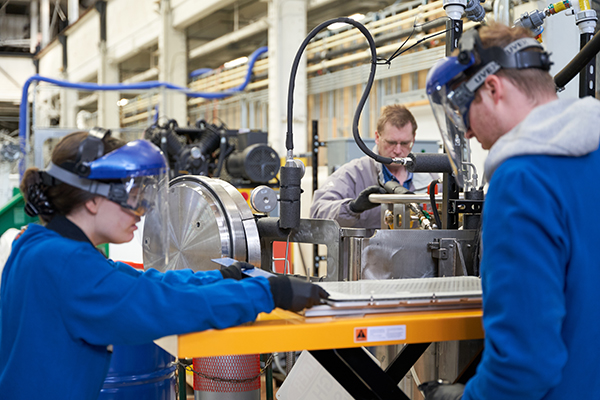
AeroShield Materials, an MIT spin out developing technology for energy-efficiency applications in the built environment, announced it was selected to receive an Advanced Research Projects Agency-Energy, or ARPA-E, Seeding Critical Advances for Leading Energy Technologies with Untapped Potential, or SCALEUP, award. This award provides new funding to previous ARPA-E awardees that are determined to have a viable road to market. AeroShield is set to receive $14.5 million to scale the manufacturing of its aerogel materials for energy-efficient windows. ARPA-E is modeled after the success of The Defense Advanced Research Projects Agency and advances high-potential, high-impact energy technologies.
AeroShield's work
AeroShield was founded to commercialize the world’s most transparent silica aerogels, a technology developed during CEO Dr. Elise Strobach’s PhD research at the Massachusetts Institute of Technology and of which AeroShield is an exclusive licensee. While aerogels have been used at institutions like NASA for decades, they are generally opaque and tinted blue. AeroShield’s patented aerogel has the transparency of glass, far surpassing prior attempts at clarity and enabling new high-value use cases for the material. AeroShield can be added as a coating to the inner glass of windows and doors to improve energy performance by up to 65%, saving money and reducing carbon emissions. Building operations represent 27% of global carbon dioxide emissions, and today’s windows are a major contributor to the lack of energy-efficiency.
While development is currently focused on residential windows and doors, the material has a wide range of applications, such as commercial windows, grocery store freezer doors, ovens, electric vehicle windows and solar thermal energy. AeroShield prototypes have passed industry-standard performance and durability testing for windows and doors, and this award will support scaled-up manufacturing as AeroShield prepares to launch its first transparent aerogel-insulated window and door products into market with commercial partners.
What AeroShield says
“We know that windows present a weak point in building efficiency. With this challenge, there is also an enormous opportunity to reduce heat losses from windows,” says ARPA-E Director Evelyn Wang. “Aeroshield Materials developed aerogels for high-efficiency insulating glass units through an earlier ARPA-E program. Now with SCALEUP funding, the company will develop a pilot manufacturing facility to validate the cost and performance, in collaboration with their commercialization partners. I look forward to following their progress and commitment to making residential and commercial buildings more energy efficient.”
“This award validates our mission to decarbonize the built environment, and that windows need to get better to enable the U.S. to meet our energy security and sustainability goals,” says AeroShield CEO Elise Strobach. “We are excited by the opportunity to bring together ARPA-E, Lawrence Berkeley National Labs, and leading window and door manufacturers to co-develop and launch super-insulating window products that help home and building owners reduce CO2 emissions by gigatons while saving billions in heating and cooling costs.”
